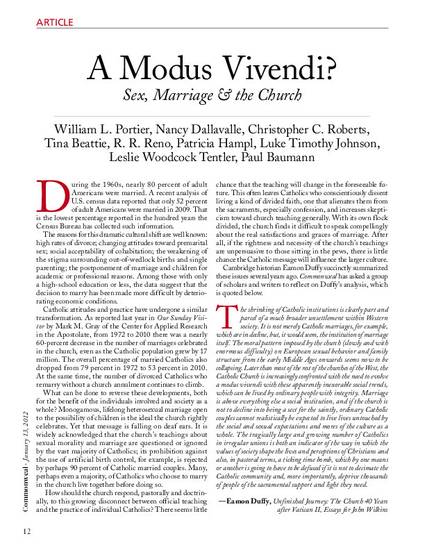
During the 1960s, nearly 80 percent of adult Americans were married. A recent analysis of U.S. census data reported that only 52 percent of adult Americans were married in 2009. That is the lowest percentage reported in the 100 years the Census Bureau has collected such information. The reasons for this dramatic cultural shift are well known: high rates of divorce; changing attitudes toward premarital sex; social acceptability of cohabitation; the weakening of the stigma surrounding out-of-wedlock births and single parenting; the postponement of marriage and children for academic or professional reasons.
Among those with only a high-school education or less, the data suggest that the decision to marry has been made more difficult by deteriorating economic conditions.
Available at: http://works.bepress.com/william_portier/8/

Article is made available for download from the repository with the permission of the publisher.
Permission documentation is on file.